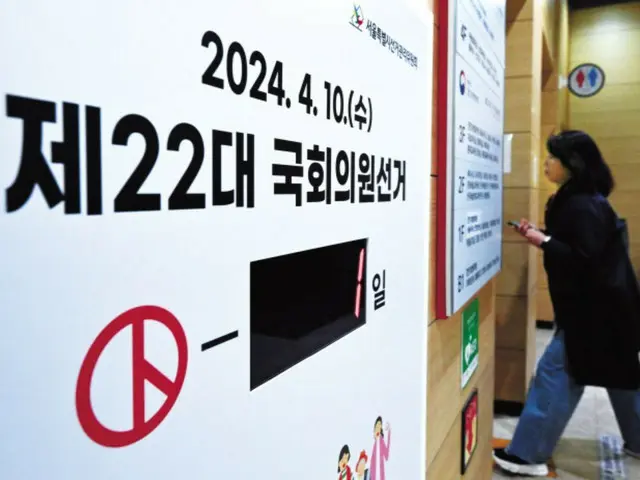Looking at the previous elections, voter turnout in presidential elections was in the 60-80% range, but general election turnout tended to be relatively low.
The highest turnout in a national election on record was in 1987.
The turnout in the 13th presidential election was 89.2%, but in the general election in 1988, the turnout was 75.8%, more than 10% lower than in the presidential election.
In the 14th general election in 1992, the party recorded a 71.9% turnout, but since then it has never exceeded 70%.
The voter turnout rate in the 21st general election four years ago was 66.2%. If it reaches the 70% range in this election, it will be the highest ever recorded in the 21st century.
The early voting rate was 31.3%, up 4.6% from the previous 21st general election. If this trend continues, it is possible that the turnout rate will reach the 70% range.
However, some experts say that an increase in early voting rates does not necessarily translate into an increase in voter turnout in the actual election, and predict a turnout rate in the low to high 60s.
The ruling party, People Power Party, did not announce a target or forecast for voter turnout, but Han Dong-hoon, chairman of emergency response and general election countermeasures committee, said in his final campaign speech on the same day that "one vote is missing."
Meanwhile, Lee Jae-myung, the leader of the main opposition Democratic Party, which has set a target voter turnout of 71.3%, said, "The situation is more urgent than during the presidential election."
The party appealed for votes. It achieved its target of 31.3% in the early voting rate held earlier. Regarding the pros and cons of the turnout approaching 70%, exceeding the record of past general elections,
It seems that the ruling and opposition parties are interpreting the results in a way that benefits them. The People's Power Party believes that the conventional wisdom that a high voter turnout is advantageous for progressive parties has been shattered this time, and that the higher the voter turnout, the more seats the ruling party will receive.
In contrast, the Democratic Party of Japan believes that the conventional wisdom remains valid this time around, and that the participation of young people in the election in response to their calls to judge the government will lead to the party's victory.
2024/04/10 06:17 KST
Copyrights(C) Herald wowkorea.jp 104

